
A stomach-twisting thrill animates the Taken movies. As bullets fly across each progressively more ridiculous sequel, Liam Neeson kicks down the door to the pantheon of cultural Super Dads and asserts himself as its king. Here is a paragon of fatherhood, the films suggest; here is a dad endowed with “a very particular set” of parenting skills, a man who may struggle to connect with his daughter emotionally but can unleash a hail of violence each time she encounters a band of licentious kidnappers.
If today it’s hard to watch Taken without at least some disgust at the glorification of Neeson’s bloodshed, perhaps it’s because the traditional conception of fatherhood his character embodies has begun to fall out of step with shifting understandings of masculinity.
Discipline was for generations the father’s domain, and righteous anger gave fatherhood meaning. A rage like Neeson’s could be justified as defining a family’s realm of acceptable behavior. But in Raising Raffi, the journalist Keith Gessen’s memoir of his first years parenting his son, discipline becomes a “quicksand of confusing implications,” Daniel Engber writes, “where the angry dad exerts control but also loses it.”
As Gessen and his generation search for solid ground on which to define fatherhood, they explore alternative sites of meaning divorced from anger: Chris Bachelder’s 2011 novel Abbott Awaits follows a father embedded not in the epic struggles of an action hero but the tedium of raising an un-kidnapped toddler—sitting in a parked car, cleaning vomit, scraping raisins from the creases of a high chair. The photographer Rashod Taylor captures with his camera the vulnerability inherent to raising a Black son in contemporary America. And the comedian John Hodgman ponders how his attempts to appear relatable and approachable leave his son seriously disturbed.
But children are often more thoughtful than those who care for them assume, Elissa Strauss argues. If fatherhood’s future foundations are ambiguous, no longer grounded in anger, violence, and discipline, perhaps they ought to be decided alongside the little philosophers. Unlike Liam Neeson, modern men don’t need to go it alone.
Every Friday in The Books Briefing, we thread together Atlantic stories on books that share similar ideas. Know other book lovers who might like this guide? Forward them this email.
When you buy a book using a link in this newsletter, we receive a commission. Thank you for supporting The Atlantic.
What We’re Reading
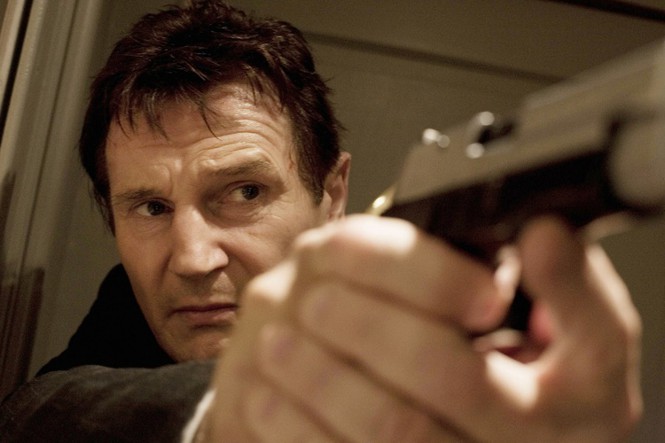
(20th Century Fox)
The Taken series is every father’s fear—and fantasy
“The appeal of Taken is Mills the superdad honoring all those ‘I’d take a bullet for my kid’ promises by making others take bullets for threatening his kin. The result is high in entertainment value for dads and non-dads alike—the Taken series has made $600 million worldwide and counting for a reason. As with most action movies, there’s something cathartic about seeing unambiguously bad people get their comeuppance, but the franchise goes about it in a much more unsavory and emotionally manipulative way.”
🎥 Taken
🎥 Taken 2
🎥 Taken 3
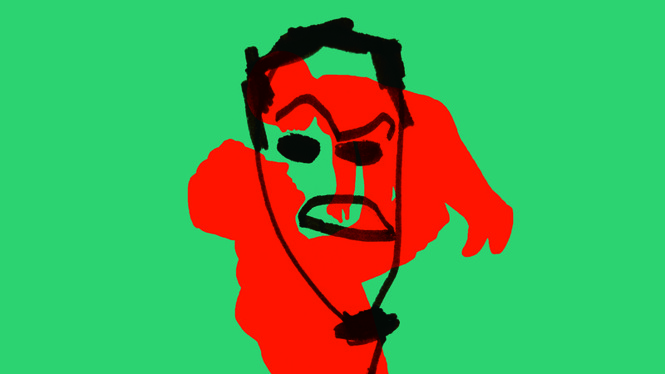
(Pablo Delcan and Río Delcan La Rocca)
Why is Dad so mad?
“His book proceeds as so many dad books don’t: with a father’s careful, piercing introspection, and a deep analysis of anger. ‘You’re a bad dada and I’m never going to listen to you again!’ his 3-year-old son says to him in one scene, after getting yelled at during bedtime. ‘I felt he was right,’ Gessen says. ‘I was not a good dada. But I didn’t know what else to do.’”
📚 Raising Raffi: The First Five Years, by Keith Gessen
📚 Pops: Fatherhood in Pieces, by Michael Chabon
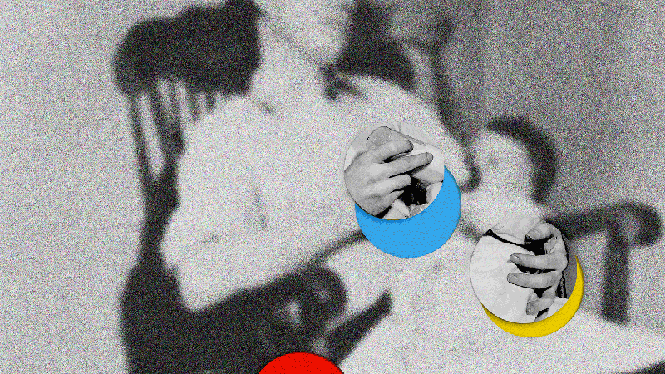
(Katie Martin / The Atlantic; Getty)
The book that captures my life as a dad
“[Chris] Bachelder’s short but indelible novel spills forth with kitchen-sink wisdom; it was exactly what I’d been missing as a young father, struggling to make sense of my irrevocably changed existence. For all the profundity that one experiences when becoming a parent—the primordial love; the humbling wonder—there’s also a lot of dullness and mundanity. Child-rearing is an immense task consisting of many mind-numbing moments. Among the reasons Abbott Awaits is remarkable is because it collects these moments and pulls them to center stage. It makes the everyday aspects of middle-class parenting objects of study, of tender observation.”
📚 Abbott Awaits, by Chris Bachelder
📚 Rabbit, Run, by John Updike
📚 The Information, by Martin Amis
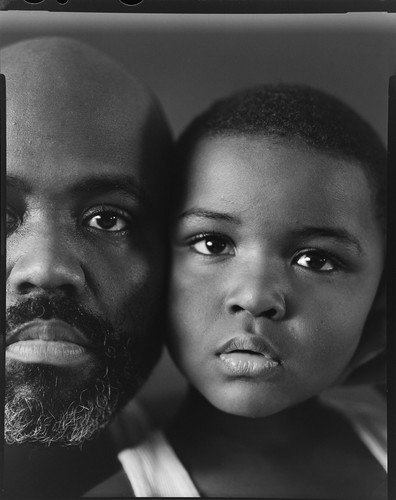
(Rashod Taylor)
The life of a little Black boy in America
“In my photo Deep Sleep, it looks like my son is sleeping, and it’s beautiful. But for me, the image also has this postmortem look. It reveals my fears of him not coming home one day and having to bury him, like so many other Black parents have. There are things I am already teaching him that other kids his age are not thinking of. Like, Hey, we probably shouldn’t wear a hoodie at night. At the same time, he’s just a little boy in the United States.”
📷 Little Black Boy, by Rashod Taylor
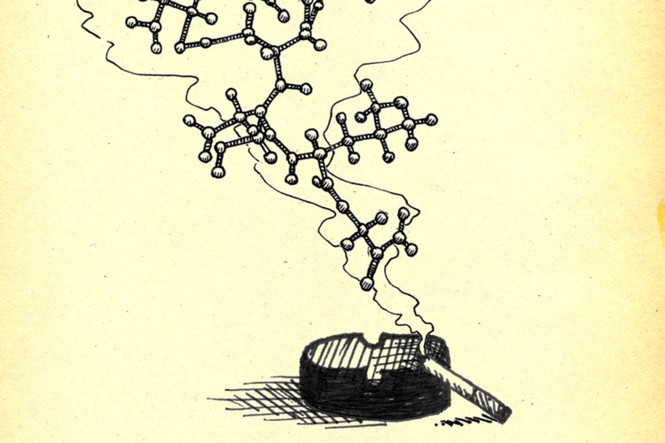
(Doug McLean)
Cujo’s unexpected lesson about parenting and art
“[John] Hodgman takes unlikely comfort from Stephen King’s novel Cujo—and not just because the book features a haunting, astoundingly insightful passage about the way parents imprint children with their flaws … Hodgman explained what the book’s masterful characterization and radical formal decisions taught him about parenting and art: that doing something well requires risking terrible mistakes. Accept it, and loosen up.”
📚 Vacationland: True Stories From Painful Beaches, by John Hodgman
📚 Cujo, by Stephen King
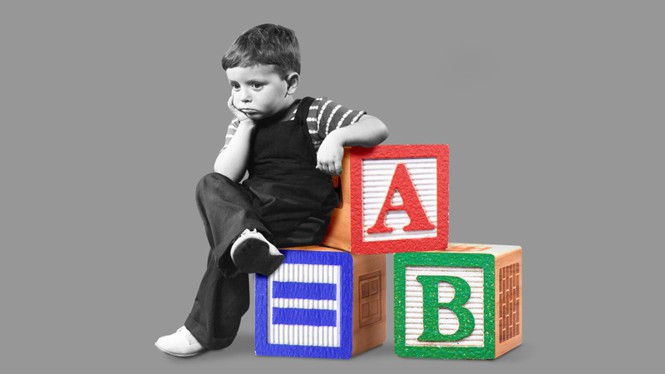
(Katie Martin / The Atlantic; Getty)
Want to understand Socrates and Sartre? Talk with your kid.
“Let us not ignore the radical nature of this. A philosopher, a man, has written a whole book arguing that the setting of the home and the daily act of parenting can lead to profound philosophical insight and debate.”
📚 Nasty, Brutish, and Short: Adventures in Philosophy With My Kids, by Scott Hershovitz
📚 The Philosophical Baby, by Alison Gopnik
About us: This week’s newsletter is written by Andrew Aoyama. The book he’s reading next is Gideon’s Trumpet, by Anthony Lewis.
Comments, questions, typos? Reply to this email to reach the Books Briefing team.







